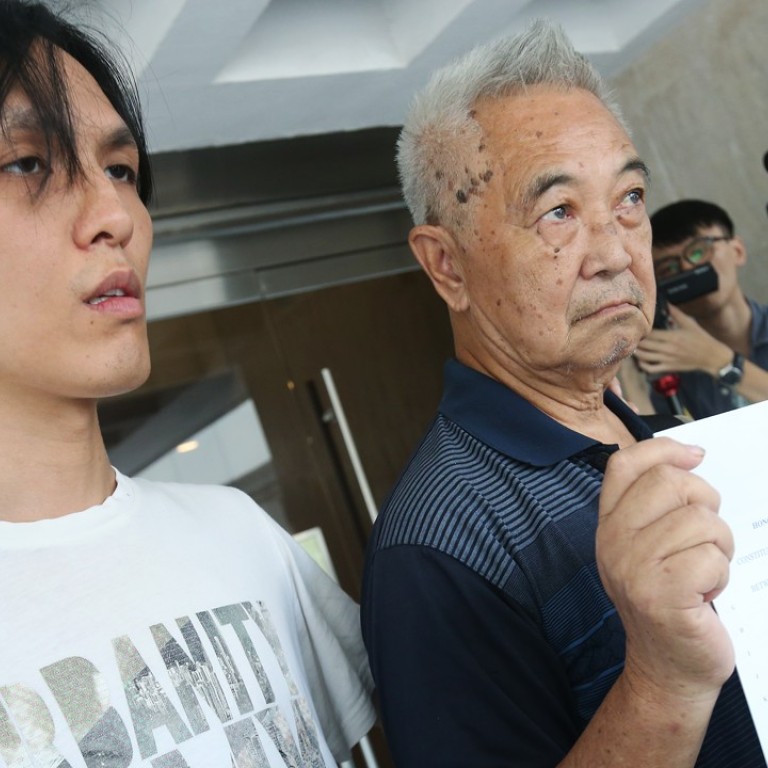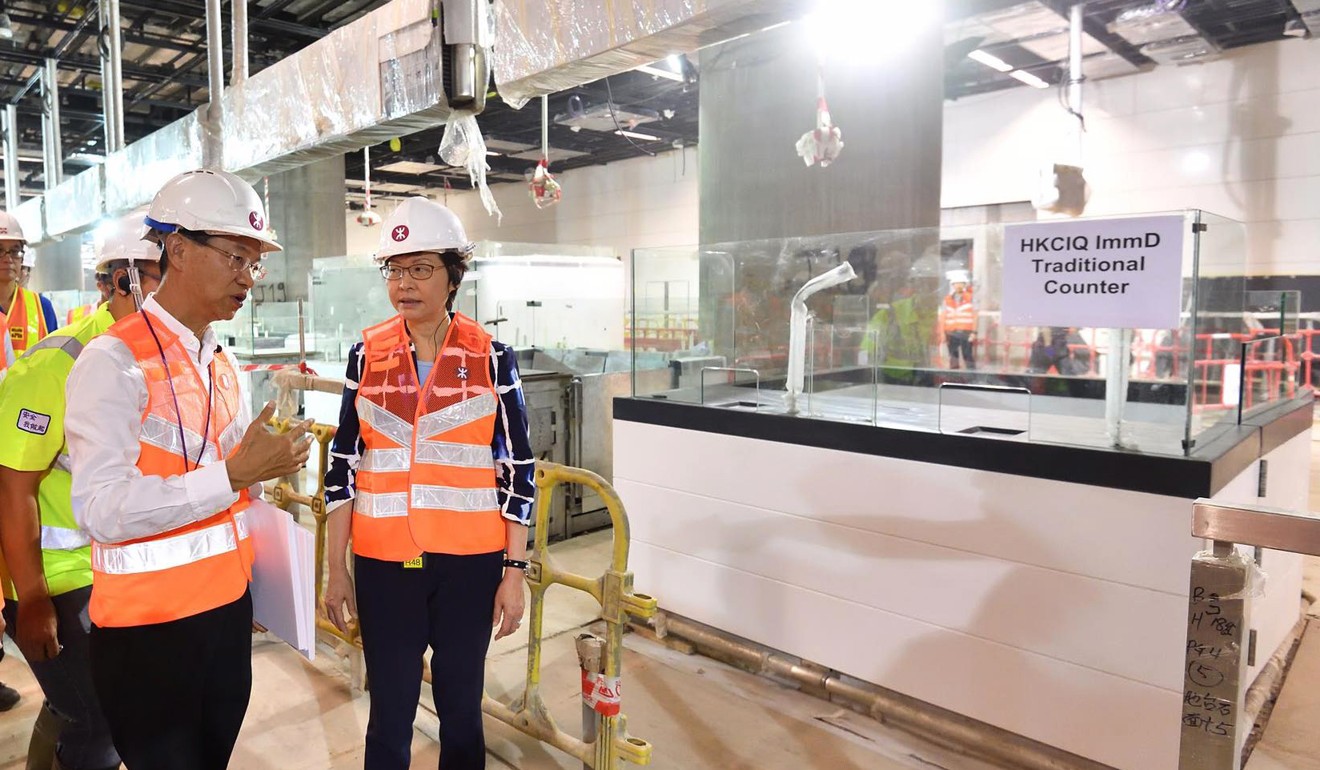
Hong Kong pair to launch judicial review applications over controversial joint checkpoint plan for high-speed rail
But activists’ court bid will only lead to Beijing interpreting Basic Law, Bar Association chief says
The controversial plan to set up a joint border checkpoint with mainland China in the heart of Hong Kong will face a fresh round of legal challenges with at least two activists planning to file a judicial review against its constitutionality, the Post has learned.
Former civil servant Kwok Cheuk-kin and social worker Hendrick Lui Chi-hang told the Post they would relaunch the judicial review against the so-called co-location arrangement, after their first bids were ruled “premature” by the High Court last September when the local legislative processes were not completed.

The local legislation was triggered after the Chinese legislature, the National People’s Congress Standing Committee, last December approved the arrangement, which will see officers from across the border enforcing national laws in the mainland port area of the West Kowloon rail terminus.
“Another challenge would be that the NPCSC’s decision on the co-location arrangement is not binding on Hong Kong,” the source added.
Kwok and Lui are expected to file the judicial review applications soon after the passed bill is formally gazetted next Friday.
The pair is expected to seek an early hearing on their applications but not an injunction order to halt the project’s ongoing construction and operation. The link is expected to open in September.
Bar Association chairman Philip Dykes said while the judicial challenge would not affect the link until a court makes a ruling, it would “very likely” prompt Beijing to interpret the Basic Law on when to apply national laws in Hong Kong.
Everything you need to know about Hong Kong’s joint rail checkpoint arrangement
“Interpretations may be inevitable. But they do not help Hong Kong’s rule of law,” Dykes said, adding that Beijing’s power was prescribed in the Basic Law.
“We’re not getting away from it. But the fewer [interpretations] the better.”
The NPCSC wrote in its decision that the co-location agreement does not violate the Basic Law
The NPCSC has handed down six interpretations of the Basic Law since Hong Kong’s handover from British to Chinese rule in 1997. The last time was in 2016, leading to the disqualification of six pan-democratic lawmakers accused of improperly taking their oaths of office.
Dykes said the Bar Association believed the co-location arrangement was unconstitutional for violating Article 18 of the mini-constitution by opening a new route to apply mainland laws in Hong Kong.
However, Lau Siu-kai, vice-chairman of the semi-official think tank the Chinese Association of Hong Kong and Macau Studies, believed there was little room for a local court to overturn the co-location legislation.
“Beijing already saw the legal challenge coming,” Lau said. “That is why the NPCSC wrote in its decision that the co-location agreement does not violate the Basic Law and block any future challenge.”
He added all bills passed by Legco would need to be reported to the NPCSC for recording purposes.
“If the NPCSC never returned the bills to Hong Kong, then it also means it is constitutional,” he said.
“I am not quite confident that the courts will exercise their powers to overturn [Legco’s] decision … but this will show more people in Hong Kong that authoritarianism is inching closer,” he said. “It has reduced our power to counter [the government] in the courts and in Legco.”
No-confidence motion planned against Legco president over rail bill debate
Transport minister Frank Chan Fan said on Thursday officials would respect citizen’s right to raise judicial reviews, but stressed the co-location plan was constitutional.
MTR Corp chief executive Lincoln Leong said the company would adhere to its target of commencing passenger services this September.
Additional reporting by Sum Lok-kei

